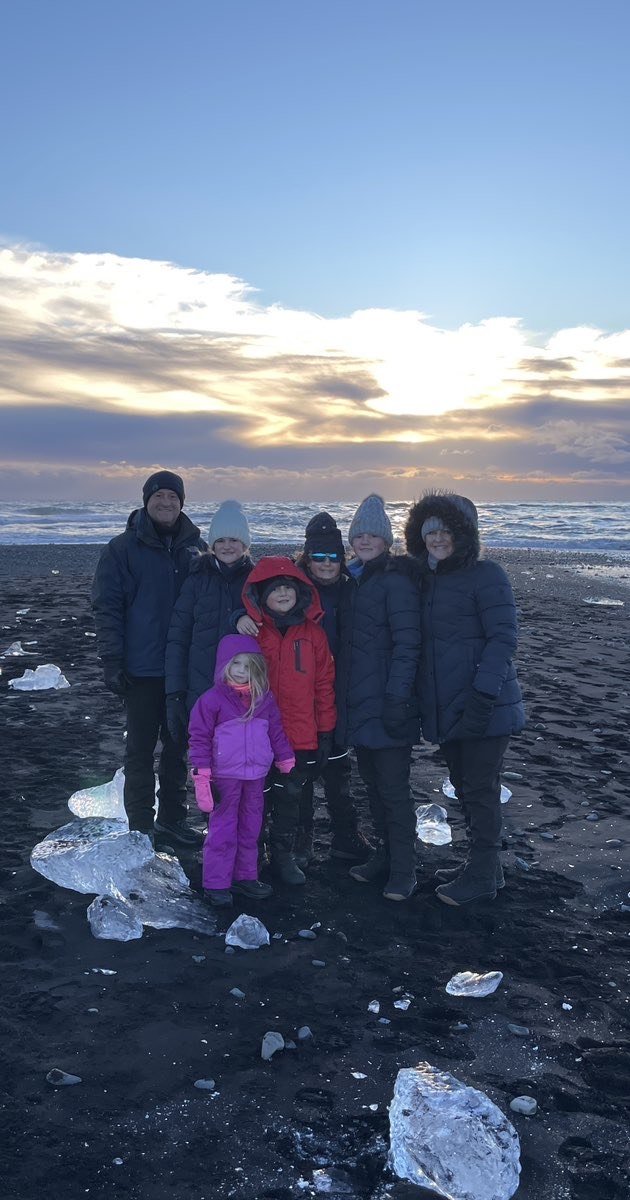De-Stress your family vacation
A Therapist’s Guide to Finding Calm, Connection, and Joy in the Chaos
This post is a collaboration with Blue Venture Travel
Georgia Harmon | @blueventuretravel_htx
Kristin Cogan, MA, LPC | @imperfectlywonderfulmotherhood
We’ve all been there. Planning done, flights on time, weather is perfect and your destination is everything youhoped it would be and more. Your family is supposed to act just as seamlessly, right? Rarely. While family vacations can be a wonderful opportunity for families to strengthen bonds, create lasting memories, and take a break from the everyday routine—attitudes and logistics sometimes don’t go exactly as planned. Our agency began with a mission of bringing families and loved ones together through travel and exploration and serve as a reminder in our community (near and far) to embrace time with loved ones and enjoy life away from the daily grind. But we also know family travel can have moments of stress as families come together to unwind.
We have asked renowned Houston family therapist Kristin Cogan, MA LPC @imperfectlywonderfulmotherhood to weigh in on how to make the most of these special times together and what to do when things don’t necessarily go as planned:
1. Connection Over Perfection
Emphasize that the goal of a family vacation isn’t to have everything go perfectly, but to spend quality time together. It's okay if plans change or things don’t go as expected—what matters most is the time spent connecting as a family.
2. Involve Your Kids in Planning
Encourage moms to involve their kids in the planning process, no matter their age. Letting children have a say in activities or destinations can make them feel valued and excited about the trip.
3. Balance Time Together and Apart
Striking a balance between family activities and allowing some individual time can make the vacation more enjoyable for everyone. Whether it’s lettingkids explore on their own within a safe environment or having quiet time, this balance is key.
4. Manage Expectations
Family vacations can sometimes bring up stress or conflict, but these moments can be opportunities for growth and communication.
5. Prioritize Fun and Relaxation
Remind families that vacations are meant for fun and relaxation. Encourage activities that everyone can enjoy together, creating moments of laughter and connection.
6. Create Memories, Not Stress
Encourage families to focus on creating positive memories rather than stressing over every detail. The goal is to return home feeling refreshed, not exhausted from trying to do too much.
When Kids (or Teens) Just Aren’t Cooperating
Dealing with uncooperative attitudes from kids or teens while on vacation can be challenging, but with the right approach, it can become an opportunity to foster understanding and connection. Here are some tips parents can use:
1. Stay Calm and Patient
It’s easy to get frustrated when kids or teens are not cooperating, but staying calm is key. Responding with patience helps to deescalate the situation and sets a positive example for how to handle frustration.
2. Acknowledge Their Feelings
Sometimes, kids and teens just want to feel heard. Acknowledge their feelings by saying something like, “I can see you’re upset” or “I understand this isn’t what you wanted to do.” Validating their emotions can help them feel understood and more willing to cooperate.
3. Offer Choices
Giving kids and teens some control over decisions can reduce resistance. Offer them choices, such as, “Would you rather do this activity now or after lunch?” or “Do you want to pick where we go next?” This can help them feel more involved and less like they’re being forced into something.
4. Set Clear Expectations
Before activities, set clear expectations about behavior and what’s planned. Let them know what’s non-negotiable (e.g., safety rules) and where there’s room for flexibility. Clear communication can prevent misunderstandings and reduce pushback.
5. Build in Breaks
If attitudes are becoming a challenge, it might be time for a break. Sometimes kids and teens just need a moment to decompress. Suggest a short break where everyone can relax, have a snack, or do something low-key before continuing with the day.
6. Use Positive Reinforcement
Encourage positive behavior by acknowledging and rewarding it. Simplepraise like, “I really appreciate how you handled that” can go a long way. Offering a small incentive, like choosing the next activity, can also motivate cooperation.
7. Pick Your Battles
Not every disagreement needs to be a big deal. If it’s a minor issue, it might be worth letting go to keep the overall mood positive. Focus on what’s most important and let smaller things slide.
8. Model Flexibility
Show your kids that it’s okay to be flexible and adapt plans when things aren’t going perfectly. Modeling this behavior can encourage them to be more flexible too.
9. Reconnect with the “Why”
Remind everyone of the purpose of the vacation—to have fun and spend time together. Sometimes a gentle reminder of why you’re there can help shift attitudes and bring everyone back to a more positive mindset.
The prayer of Sir Francis Drake serves as our backbone, reminding us all to unplug and create space for creativity and togetherness. It is in these moments that we find strength, courage, hope, and love for eachother and what we do. Your Blue Venture Travel team wishes you safe travels and to enjoy time with your loved ones!

